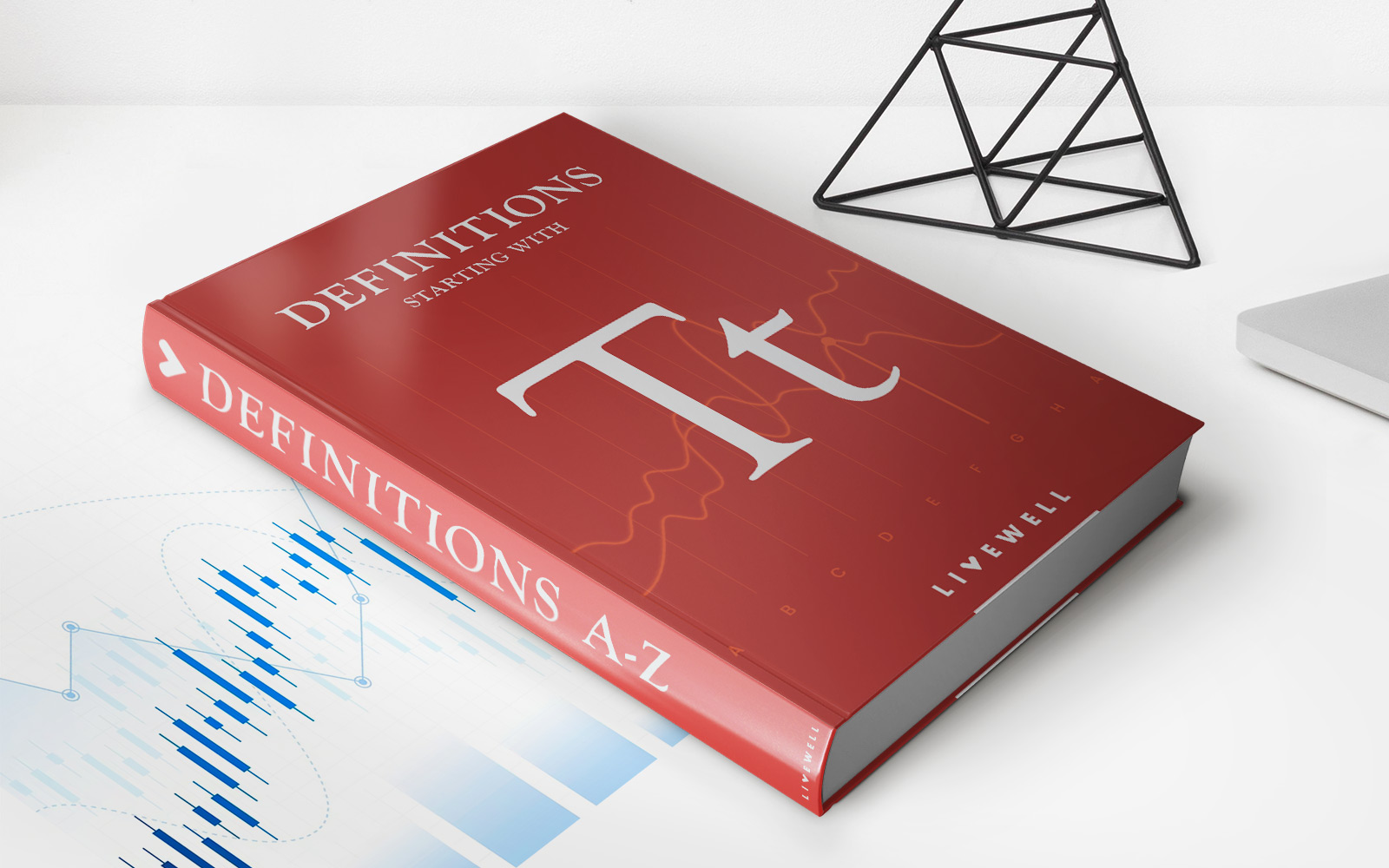

Finance
What Is Securities Trading
Published: November 26, 2023
Learn about securities trading in the field of finance. Discover the principles, strategies, and tools used in this dynamic market.
(Many of the links in this article redirect to a specific reviewed product. Your purchase of these products through affiliate links helps to generate commission for LiveWell, at no extra cost. Learn more)
Table of Contents
Introduction
Securities trading plays a crucial role in the world of finance, serving as the backbone of global markets. From stocks and bonds to derivatives and commodities, securities represent valuable assets that can be bought, sold, and traded within various financial exchanges. This process of trading securities forms the foundation of investment and capital formation, enabling businesses and governments to access funding for their operations and growth.
Securities trading is a dynamic and complex field that involves the buying and selling of financial instruments, such as stocks, bonds, and mutual funds. It is a way for individuals and institutions to invest their money in the hopes of earning a return on their investments. This process relies on the principles of supply and demand, market efficiency, and investor confidence.
Securities trading offers numerous benefits to participants in the financial markets. For investors, it provides an opportunity to grow their wealth and achieve financial goals. For corporations and governments, it offers a means to raise capital and finance their activities. Additionally, securities trading contributes to market liquidity, price discovery, and economic growth.
In this article, we will explore the world of securities trading, covering its definition, types of securities, importance, securities exchanges, participants, process, risks, challenges, and regulations. By understanding the intricacies of securities trading, individuals can make informed investment decisions and navigate the financial markets with confidence.
Definition of Securities Trading
Securities trading, also known as stock trading or investment trading, refers to the buying and selling of financial instruments known as securities, which represent ownership or rights to certain assets. Securities can include stocks, bonds, mutual funds, exchange-traded funds (ETFs), options, futures, and other types of investment instruments.
When engaging in securities trading, buyers and sellers come together within financial markets to exchange securities at agreed-upon prices. The transactions can occur either on organized stock exchanges, such as the New York Stock Exchange (NYSE) or the London Stock Exchange (LSE), or through over-the-counter (OTC) platforms, where trades are executed directly between buyers and sellers.
The primary objective of securities trading is to generate a profit by capitalizing on price fluctuations or dividends. Traders aim to buy securities at a lower price and sell them at a higher price, benefiting from the difference in value. Meanwhile, investors seek to hold securities over a longer period, with the expectation of earning income through interest payments or dividend distributions.
Securities trading operates on the principle of supply and demand. The price of securities is determined by the interaction of buyers and sellers in the market. If there is a high demand for a security and limited supply, the price tends to increase. Conversely, if there is low demand and excess supply, the price may decline. This constant interplay creates opportunities for investors to profit or lose money, depending on their trading decisions.
Securities trading is facilitated by financial intermediaries, such as brokerage firms or investment banks, which act as intermediaries between buyers and sellers. These intermediaries execute trades on behalf of their clients and provide them with access to information, research, and trading platforms.
In recent years, securities trading has evolved significantly with the emergence of electronic trading platforms. These online systems enable investors to trade securities electronically, providing greater accessibility and efficiency. Electronic trading has also led to the rise of algorithmic trading, where computer programs execute trades based on pre-programmed instructions, often in milliseconds.
Overall, securities trading enables investors to participate in the financial markets, diversify their portfolios, and potentially earn a return on their investments. It is a fundamental component of the global economy, promoting capital formation, liquidity, and economic growth.
Types of Securities
Securities trading encompasses a wide variety of financial instruments, each with its own characteristics and risk-return profiles. Here are some of the main types of securities:
- Stocks (Equities): Stocks represent ownership in a company and entitle the holder to a share of its profits through dividends. Common stocks provide voting rights in shareholders’ meetings, while preferred stocks have a fixed dividend rate.
- Bonds (Fixed Income Securities): Bonds are debt instruments issued by governments, municipalities, and corporations to raise capital. They offer investors regular interest payments (coupons) and repayment of the principal amount at maturity.
- Mutual Funds: Mutual funds pool money from multiple investors to invest in a diversified portfolio of securities. They provide investors with access to professionally managed portfolios across various asset classes.
- Exchange-Traded Funds (ETFs): ETFs are similar to mutual funds but trade on stock exchanges like individual stocks. They track indices or sectors and offer investors exposure to a specific market segment or asset class.
- Options: Options grant the holder the right, but not the obligation, to buy (call option) or sell (put option) an underlying asset at a predetermined price (strike price) within a specified period.
- Futures: Futures contracts obligate the buyer to purchase and the seller to sell an asset at a predetermined price and future date. Futures are standardized contracts traded on exchanges and are used to speculate or hedge against future price movements.
- Commodities: Commodities include raw materials such as oil, gold, natural gas, wheat, and coffee. Investors can trade commodity futures contracts or invest in commodity-focused ETFs.
- Derivatives: Derivatives are financial instruments derived from underlying assets and include options, futures, swaps, and forward contracts. They allow investors to speculate on price movements or hedge against risks.
These are just a few examples of the wide range of securities available in the financial markets. Each type of security carries a different level of risk, potential return, and investment strategy. It is crucial for investors to understand the characteristics of each security type and their suitability for their investment objectives.
Importance of Securities Trading
Securities trading plays a fundamental role in the global economy and financial markets. Here are some key reasons why securities trading is important:
- Capital Formation: Securities trading enables businesses, governments, and other entities to raise capital for their operations and growth. By issuing stocks or bonds, companies can generate funds to invest in new projects, expand their operations, or finance research and development. This capital formation contributes to economic growth, job creation, and innovation.
- Investment Opportunities: Securities trading provides individuals, institutional investors, and fund managers with a wide range of investment opportunities. Investors can diversify their portfolios by investing in various asset classes, such as stocks, bonds, mutual funds, and ETFs. This diversification allows investors to spread their risks and potentially earn higher returns.
- Liquidity: Securities trading enhances market liquidity, making it easier for investors to buy and sell securities quickly and at fair prices. Liquidity is crucial for market efficiency and stability. It enables investors to enter or exit positions with ease and facilitates price discovery within financial markets.
- Price Discovery: Securities trading contributes to the process of price discovery, which reflects the true value of securities based on supply and demand dynamics. Through the interactions between buyers and sellers, market prices are established, reflecting the collective opinions and expectations of market participants.
- Asset Allocation and Risk Management: Securities trading allows investors to strategically allocate their assets across different securities to manage risk. By diversifying their portfolios, investors can reduce the impact of individual security performance on their overall investment returns, mitigating risk and potentially increasing long-term profitability.
- Income Generation: Securities such as bonds and dividend-paying stocks provide investors with a source of regular income. This income generation is particularly important for individuals, pension funds, and other entities that rely on investment returns to meet their financial obligations or support retirement.
- Economic Indicators: Securities trading and market performance are closely monitored and can serve as key economic indicators. Fluctuations in stock market indices, bond yields, and other securities can provide insights into investor sentiment, economic health, and overall market conditions.
- Wealth Creation and Financial Inclusion: Securities trading can open doors to wealth creation and financial inclusion. By providing opportunities for individuals to invest and participate in the financial markets, it enables individuals to build wealth, achieve financial goals, and promote economic empowerment.
Overall, securities trading is vital for economic growth, efficient allocation of resources, wealth creation, and investment opportunities. It fosters liquidity, price discovery, and market transparency, benefiting both individual investors and the global financial system as a whole.
Securities Exchanges
Securities exchanges, also known as stock exchanges or financial markets, are organized platforms where securities are bought and sold. These exchanges provide a regulated and transparent marketplace for investors and companies to participate in securities trading. Here are some of the most prominent securities exchanges worldwide:
- New York Stock Exchange (NYSE): Established in 1792, the NYSE is one of the largest and oldest stock exchanges in the world. It operates as a physical exchange where traders gather on the trading floor to buy and sell stocks of various companies.
- NASDAQ: NASDAQ is a fully electronic stock exchange that allows investors to trade stocks through a computerized system. It is known for listing many high-tech companies and is a popular platform for technology stocks.
- London Stock Exchange (LSE): The LSE is one of the major stock exchanges in Europe that facilitates trading of a wide range of securities, including stocks, bonds, ETFs, and derivatives.
- Tokyo Stock Exchange (TSE): The TSE is the largest stock exchange in Japan and one of the largest in Asia. It provides a venue for trading various securities, including stocks, bonds, ETFs, and REITs (Real Estate Investment Trusts).
- Shanghai Stock Exchange (SSE): The SSE is one of the two main stock exchanges in China and is a key player in the Asian financial market. It facilitates trading of stocks, bonds, and funds listed in mainland China.
- Frankfurt Stock Exchange (FWB): The FWB is the primary stock exchange in Germany and one of the largest in Europe. It is known for its strong presence in financial services, technology, and energy sectors.
- Bombay Stock Exchange (BSE): The BSE is the oldest stock exchange in Asia and the largest in India. It allows trading of various securities, including equities, derivatives, and bonds.
- Hong Kong Stock Exchange (HKEX): The HKEX is a major stock exchange in Asia and serves as a gateway for international investors to access the Chinese market. It trades stocks, bonds, ETFs, and derivatives.
These exchanges operate within regulatory frameworks and implement systems to ensure fair and orderly trading. They facilitate efficient price discovery, provide market participants with access to valuable information, and establish rules and requirements for listing and delisting securities.
In addition to these primary exchanges, there are also regional exchanges, alternative trading platforms, and over-the-counter (OTC) markets where securities trading takes place. These include the Chicago Mercantile Exchange (CME), the Intercontinental Exchange (ICE), and numerous electronic communication networks (ECNs) that facilitate trading outside traditional exchanges.
Securities exchanges play a critical role in the financial markets, promoting transparency, liquidity, and investor protection. They provide a marketplace for investors to buy and sell securities, enabling efficient capital allocation and fostering economic growth.
Participants in Securities Trading
Securities trading involves various participants who play distinct roles in the financial markets. These participants contribute to the liquidity, efficiency, and functioning of securities trading. Here are some key players:
- Individual Investors: Individual investors, including retail traders, play an important role in securities trading. They buy and sell securities based on their investment goals, risk tolerance, and market analysis. Individual investors can trade directly through brokerage accounts or indirectly through mutual funds or robo-advisors.
- Institutional Investors: Institutional investors, such as pension funds, insurance companies, and hedge funds, have substantial capital to invest in securities. They engage in securities trading to manage their portfolios, generate returns, and meet the long-term financial goals of their stakeholders.
- Brokers and Brokerage Firms: Brokers and brokerage firms act as intermediaries between buyers and sellers in securities transactions. They execute trades on behalf of clients, provide market analysis and research, and offer investment advisory services. Examples of brokerage firms include Goldman Sachs, Morgan Stanley, and Charles Schwab.
- Market Makers: Market makers are entities, usually specialized firms, that provide liquidity in the market by quoting bid and ask prices for securities. They stand ready to buy or sell securities at all times to ensure smooth trading. Market makers play a crucial role in reducing bid-ask spreads and facilitating market efficiency.
- Securities Exchanges: Securities exchanges, such as the New York Stock Exchange (NYSE) and NASDAQ, act as organized marketplaces where buyers and sellers trade securities. Exchanges provide the necessary infrastructure, rules, and trading platforms to facilitate transactions and maintain market integrity.
- Regulators: Regulatory bodies, such as the Securities and Exchange Commission (SEC) in the United States, are responsible for overseeing and regulating securities trading. They establish rules and guidelines to protect investors, ensure fair practices, and maintain the stability and integrity of the financial markets.
- Clearing and Settlement Entities: Clearing and settlement entities, such as central clearinghouses, ensure the smooth processing of securities trades. They guarantee the performance of trades, mitigate counterparty risk, and facilitate the settlement and delivery of securities between buyers and sellers.
- Financial Analysts: Financial analysts provide research and analysis on the performance and valuation of securities. They assess market trends, evaluate companies, and make investment recommendations to individual and institutional investors.
- Financial Media: Financial media outlets, including news agencies, newspapers, and financial websites, play a crucial role in disseminating information and news that impact securities trading. They provide investors with real-time market updates, analysis, and insights to make informed investment decisions.
These participants work together to create a vibrant and efficient securities trading ecosystem. Their contributions ensure that the financial markets function smoothly and provide opportunities for investors to buy and sell securities with confidence.
Process of Securities Trading
The process of securities trading involves various steps and participants. While the specifics may vary depending on the type of security and the platform used, here is a general overview of the process:
- Research and Analysis: Before engaging in securities trading, investors typically conduct research and analysis to identify potential investment opportunities. They study market conditions, company financials, industry trends, and other relevant factors to make informed decisions.
- Order Placement: Once investors have identified a security to buy or sell, they place an order through their brokerage account. The order specifies the security, quantity, and price at which they wish to execute the trade.
- Order Routing: The brokerage firm receives the order and may route it to the appropriate securities exchange or market maker. This step ensures that the order is directed to the market where the security is actively traded to find the best available price.
- Execution: The order is executed when a buyer and seller agree on a transaction price. In a centralized exchange, the trade occurs when a market participant accepts the bid or ask price. In decentralized markets, the trade may be executed through negotiation or through electronic platforms.
- Confirmation: Once the trade is executed, the brokerage firm sends a trade confirmation to the investor, detailing the transaction, including the security, price, quantity, and fees.
- Clearing and Settlement: The clearing and settlement process ensures the timely and accurate transfer of securities and funds between the buyer and seller. This involves verifying transaction details, confirming ownership, and facilitating the transfer of funds and securities through a central clearinghouse or settlement entity.
- Account Update: Following the completion of a trade, investors’ brokerage accounts are updated to reflect the new holdings or cash balance. Investors can view their updated positions, account balances, and transaction history through their brokerage platform.
- Monitoring and Management: Investors continue to monitor their securities holdings, track market trends, and evaluate the performance of their investments. They may decide to hold, sell, or buy additional securities based on market conditions, their investment goals, and their risk tolerance.
It’s important to note that the process of securities trading can vary depending on factors such as the type of security, the trading platform used (physical exchange or electronic platform), and the specific rules and regulations of the market. Additionally, the speed and automation of the process have increased with the advent of electronic trading and algorithmic trading strategies.
By understanding the process of securities trading, investors can navigate the markets with confidence, make informed decisions, and effectively manage their investment portfolios.
Risks and Challenges in Securities Trading
Securities trading offers opportunities for investors to grow their wealth, but it also comes with various risks and challenges. Understanding and managing these risks is essential for successful trading. Here are some of the key risks and challenges in securities trading:
- Market Volatility: Financial markets are subject to volatility, where prices can fluctuate rapidly due to various factors such as economic news, geopolitical events, or market sentiment. Volatility can lead to significant price swings and potential losses for investors.
- Liquidity Risk: Some securities may have low trading volumes or limited buyers and sellers, making it difficult to enter or exit positions at desired prices. Illiquid securities can pose challenges in executing trades, potentially resulting in delays or higher transaction costs.
- Interest Rate Risk: Fixed-income securities, such as bonds, are sensitive to changes in interest rates. When interest rates rise, bond prices typically fall, which can lead to capital losses for investors holding those securities.
- Company-Specific Risk: Investing in individual stocks carries company-specific risks, such as poor financial performance, management issues, or legal problems. These risks can lead to a decline in the value of the stock and potential losses for investors.
- Regulatory and Policy Risks: Changes in government regulations or policies can impact securities markets and individual investments. Regulatory actions, new legislation, or geopolitical developments can introduce uncertainty and influence the performance of securities.
- Execution Risk: There can be risks associated with the execution of trades. For example, delays in order execution, technical glitches, or system failures can result in missed trading opportunities or unintended price executions.
- Information Asymmetry: Access to accurate and timely information is essential for successful securities trading. Information asymmetry, where some market participants have better access to information than others, can put certain investors at a disadvantage and impact trading outcomes.
- Psychological Factors: Human emotions and biases can impact securities trading decisions. Fear, greed, overconfidence, and herd mentality can lead to irrational trading behavior, such as buying at the peak or selling during market panics, which can result in poor investment outcomes.
- Counterparty Risk: In certain trading arrangements, there may be counterparty risk, which refers to the risk that the other party in a transaction may default or fail to fulfill their obligations. This risk is more prevalent in over-the-counter (OTC) trading or derivative contracts.
- Financial Leverage: Trading on margin or using financial leverage amplifies both potential gains and losses. While leverage can enhance profitability, it also exposes traders to higher risks and potential significant losses if the market moves against their positions.
Managing risks in securities trading requires a combination of careful analysis, diversification, risk assessment, and setting realistic expectations. Investors should conduct thorough research, develop a well-defined trading strategy, and consider employing risk management techniques such as stop-loss orders or position sizing to protect their capital.
It is important for traders and investors to be aware of the risks associated with securities trading and to continuously educate themselves on risk management strategies to navigate the dynamic and unpredictable nature of the financial markets.
Regulations in Securities Trading
Securities trading is subject to a comprehensive framework of regulations designed to protect investors, ensure market integrity, and promote fair and transparent trading practices. These regulations are enforced by regulatory bodies and government agencies in each jurisdiction. Here are some key aspects of securities trading regulations:
- Registration and Licensing: Market participants, such as brokerage firms, investment advisors, and exchanges, are required to register and obtain licenses from regulatory authorities. This process ensures that these entities meet specific regulatory standards and are qualified to operate in the securities industry.
- Disclosure and Reporting: Companies issuing securities are required to disclose relevant information to investors that may impact investment decisions. This includes financial statements, annual reports, and disclosures of material events. Additionally, insiders who possess non-public information about a company are subject to restrictions on trading to prevent insider trading.
- Market Manipulation and Fraud: Regulations prohibit market manipulation, insider trading, and other fraudulent practices. Manipulative activities such as spreading false information, creating artificial demand, or engaging in front-running are strictly prohibited and subject to legal consequences.
- Market Surveillance: Regulatory bodies employ market surveillance systems to monitor trading activities and detect potential market abuses. These systems analyze trading patterns, unusual price movements, and other indicators of suspicious trading activity to maintain market integrity.
- Capital Requirements: Regulatory authorities set capital adequacy requirements for brokerage firms and financial institutions involved in securities trading. These requirements ensure that these entities have sufficient capital to withstand potential financial shocks and protect the interests of investors.
- Investor Protection Measures: Regulations aim to safeguard the interests of investors by establishing standards for brokers, financial advisors, and other market participants. These standards emphasize the duty of care, fiduciary responsibilities, and the obligation to act in the best interests of clients.
- Market Conduct: Regulations define acceptable market conduct and ethical standards for market participants. This includes rules regarding market manipulation, conflicts of interest, proper handling of client funds, and fair and orderly trading practices.
- Enforcement and Penalties: Regulatory bodies have the authority to enforce regulations and impose penalties and sanctions for violations. This may include fines, license suspension or revocation, and criminal proceedings against individuals or entities found to be in non-compliance.
- International Cooperation: Securities trading regulations often require international cooperation and information sharing between regulatory authorities across jurisdictions. This helps combat cross-border securities fraud, money laundering, and other illicit activities.
- Continuous Monitoring and Updates: Regulatory bodies regularly review and update regulations to adapt to evolving market conditions, new financial products, and emerging risks. This ensures that regulatory frameworks remain effective and responsive to changes in the securities trading landscape.
Regulations in securities trading are crucial to maintain investor confidence, protect against market manipulation, and promote fair and transparent markets. Compliance with these regulations is essential for market participants to operate legally, responsibly, and ethically within the securities industry.
Conclusion
Securities trading is a vital component of the global financial system, facilitating the buying and selling of various financial instruments such as stocks, bonds, mutual funds, and derivatives. It enables individuals, institutions, and governments to raise capital, invest their savings, and manage risks. Securities trading contributes to market liquidity, price discovery, and economic growth.
Throughout this article, we have explored the definition and types of securities, the importance of securities trading, the role of securities exchanges, the participants in securities trading, the process of trading, the risks and challenges involved, and the regulations that govern this dynamic field.
While securities trading presents opportunities for wealth creation and investment growth, it also comes with risks such as market volatility, company-specific risks, and regulatory challenges. Understanding these risks and navigating the complex regulatory environment is crucial for successful trading and investing.
By comprehending the intricacies of securities trading, individuals and institutional investors can make informed decisions, mitigate risks, and enhance their chances of achieving their financial goals. Additionally, adherence to regulations and ethical practices ensures the integrity and stability of the financial markets.
Overall, securities trading plays an integral role in the global economy, advancing capital formation, encouraging investment, and contributing to economic growth. It provides individuals with the opportunity to participate in the financial markets, generate wealth, and work towards their long-term financial aspirations.
As you embark on your securities trading journey, it is essential to stay informed, continuously educate yourself, and work with trusted financial professionals to navigate the complex landscape of securities markets with confidence and diligence.














